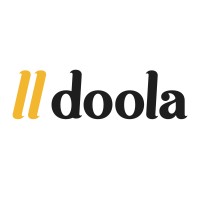A resale certificate in Vermont is an important document that enables businesses to purchase goods intended for resale without the obligation of paying sales tax at the point of purchase. This exemption in Vermont aids businesses in optimizing cash flow by eliminating the immediate tax obligation on items that will be resold to end consumers. Not impacting cash flow upfront allows businesses to allocate resources more strategically to other areas such as marketing or inventory management.
In Vermont, businesses must provide the resale certificate to suppliers as evidence of their status as resellers to qualify for the tax exemption. It is crucial for businesses to use the resale certificate correctly to comply with state tax regulations and avoid potential penalties or tax liabilities. Ensuring the accurate and compliant use of a resale certificate is essential for maintaining smooth business operations and financial integrity.
For those looking to obtain a resale certificate, doola can assist with the process, taking the hassle out of obtaining this vital document. Continue exploring to discover all you need to know about resale certificates.

What Is a Resale Certificate?
When a business in Vermont purchases products for resale, a resale certificate can be presented to avoid paying sales tax at the time of purchase. The sales tax is instead collected when the product is sold to its final consumer.
Suppliers rely on the resale certificate to verify that the buyer is a genuine reseller. Misuse of this certificate, such as using it for personal purchases, can lead to penalties and tax responsibilities. This ensures that taxes are properly collected only once, at the end-user point of sale.
Who Qualifies for a Resale Certificate in Vermont?
To obtain a resale certificate in Vermont, a business must:
- Be registered with the Vermont Department of Taxes for sales tax collection
- Engage in selling tangible goods that are subject to sales tax upon consumer sale
- Intend to resell the goods instead of utilizing them for personal or operational use
If these criteria are met, your business can apply for a resale certificate to make tax-free purchases.
How to Get a Resale Certificate in Vermont
Businesses can follow these steps to obtain a resale certificate:
- Register for a Sales Tax Account
Businesses must first register for a Sales Tax License with the Vermont Department of Taxes. This includes completing the appropriate application forms to receive a Sales Tax Account Number.
- Understand Vermont’s Resale Certificate Rules
In Vermont, a specific resale certificate is typically not issued. Instead, businesses may use their Sales Tax License when making tax-exempt purchases.
This Sales Tax License can act as a resale certificate and is provided to suppliers.
- Provide Your Sales Tax License to Suppliers
When buying tax-exempt inventory for resale, present a copy of your Vermont Sales Tax License to suppliers.
Some suppliers might request a specific resale certificate form, like the Uniform Sales & Use Tax Certificate from the Multistate Tax Commission.
- Ensure Proper Use and Compliance
Only utilize the Sales Tax License for tax-exempt purchases earmarked for resale.
Suppliers might validate the authenticity of your license through Vermont’s Department of Taxes database.
Misuse of tax-exempt status can trigger penalties, retrospective taxes, and the loss of tax privileges.
If deciphering this appears daunting, doola’s expert bookkeeping team can streamline the process and alleviate the bureaucratic workload.
What Are Differences from Other States?
- Unlike many states with separate resale certificates, Vermont typically uses the Sales Tax License to make tax-free resale purchases.
- No additional resale certificate documentation is needed.
How to Accept a Resale Certificate as a Seller in Vermont
If you are selling goods for resale, follow these steps:
- Provide the supplier with a completed resale certificate prior to making a sales-tax-exempt purchase.
- Ensure the items purchased are solely for resale and not for personal business use.
- Maintain records of all resale certificate transactions to remain in compliance with tax requirements.
- Verify that your suppliers accept resale practices in Vermont.
By not following these steps, sellers may face the denial of exemption claims, additional tax liabilities, or penalties.
Common Mistakes to Avoid
Improper use of a resale certificate can result in audits, fines, and removal of tax-exempt status. Common errors include:
- Purchasing items for personal business use instead of resale
- Providing an expired or invalid certificate
- Failing to maintain accurate records of tax-exempt purchases
To stay compliant, it’s vital for businesses periodically to review and document their resale certificate utilization.
Sales Tax Rules and Exemptions in Vermont
Vermont’s tax exemption rules for resale specify that certain products or services may not qualify for tax exemption under a resale certificate. Businesses must remain informed about these specific regulations to ensure compliance. Consult state regulations for extensive guidance on taxable versus non-taxable resale items.
Resale Certificate vs. Sales Tax Permit
A resale certificate permits businesses to engage in tax-exempt purchases, while a sales tax permit enables them to levy and remit sales tax to Vermont. These documents are closely connected:
Resale Certificate:
Used to acquire inventory tax-free from suppliers.
Sales Tax Permit:
Necessary to levy and remit sales tax from customers.
Both are integral for tax adherence, and businesses should ensure proper registration.
Penalties for Misusing a Resale Certificate in Vermont
Improper utilization of a resale certificate in Vermont can lead to substantial repercussions, including fines and tax audits. Businesses are accountable for adhering to sales tax legislation, guaranteeing that resale certificates are utilized accurately and solely for legitimate purposes. Violations can incur penalties adversely affecting both the financial state and reputation of the business.
FAQs About Resale Certificates in Vermont
Do resale certificates expire?
Typically, Vermont’s resale certificates do not expire, but businesses should periodically review them for accuracy and compliance.
Can out-of-state resale certificates be used in Vermont?
Businesses must determine if out-of-state certificates comply with Vermont’s standards; otherwise, obtaining a Vermont-specific certificate may be necessary.
Can a resale certificate be used for multiple states?
In general, resale certificates are state-specific and may not apply to transactions in other states unless reciprocal agreements are in place.
How long is a resale certificate valid in Vermont?
Vermont’s resale certificates are generally valid indefinitely but should be reviewed periodically to ensure compliance.
Staying Compliant With doola
Resale certificates are crucial for facilitating tax-free transactions for resellers, ultimately helping businesses manage their sales tax accountability effectively. Businesses in Vermont need to understand how to accurately obtain and utilize these certificates to avoid penalties and ensure compliance. For comprehensive financial solutions, including expert tax guidance, doola can provide support to ensure compliance with resale tax laws in Vermont. By capitalizing on our team’s professional assistance, businesses can concentrate on what they excel at while remaining compliant with state regulations.




